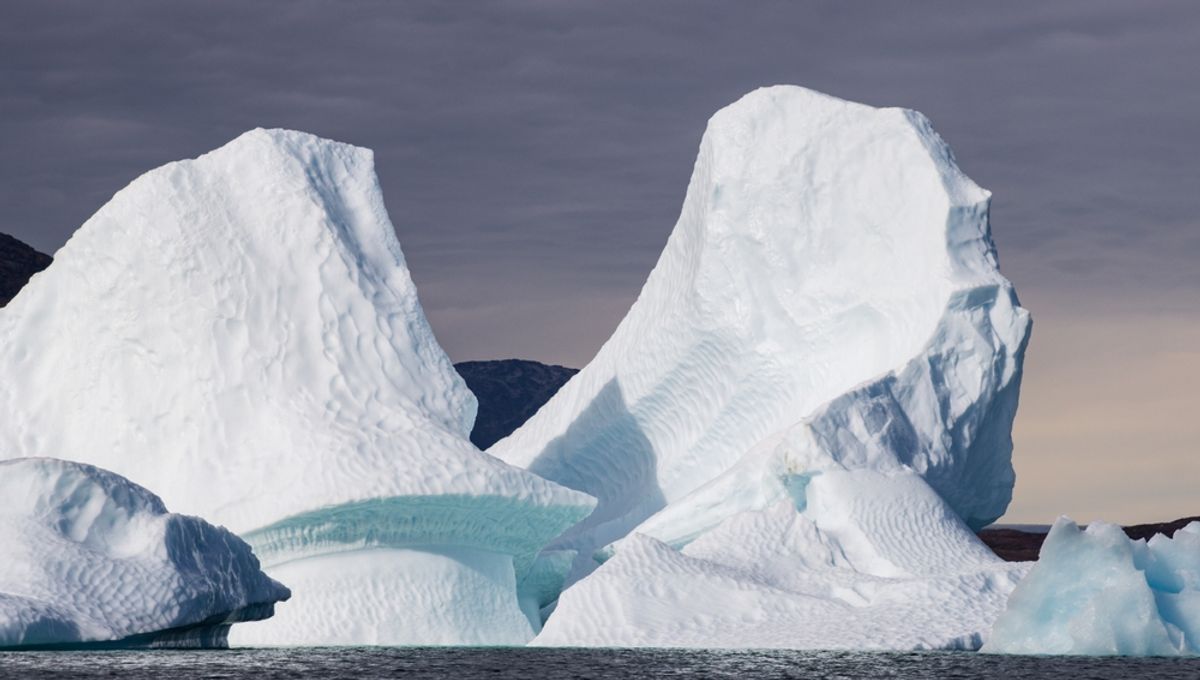
It may sound counterintuitive but as the world gets warmer, one part of the globe is due to get significantly cooler. This aberration occurs in an area extending from Greenland to Ireland called (even more counterintuitively) the North Atlantic Warming Hole (NAWH).
The NAWH – also known as “the cold blob” – appears on a global heat map as an anomalous blue patch in a sea of orange and yellow. While average ocean temperatures are rising as a consequence of human-driven climate change, the NAWH bucks the trend and instead displays a cooling pattern. Now, climate scientists predict changing winds will impact ocean circulation and intensify these cooling patterns from around 2040.
“Even though there’s global warming, it’s an area that’s cooling, and it’s expected to continue to cool,” lead author Kay McMonigal, an assistant professor at the University of Alaska Fairbanks College of Fisheries and Ocean Sciences, said in a statement.
McMonigal and her team came to this conclusion after using computer modeling to produce two outcomes – in one, wind changes impacted ocean circulation; in the other, it did not. The models used historical data from 1850 to 2014 and were based on a moderate-high scenario in terms of future greenhouse gas emissions. (This is not the worst-case scenario but it is still pretty bad.) While wind-driven ocean circulation did not affect warming at first, climate scientists did detect a shift that they predict will occur around the year 2040 where weaker winds will exacerbate cooling trends by reducing levels of ocean stirring. According to the model, this period of cooling would persist until approximately 2070.
The world’s seas and oceans are continuously stirred and swirled by tides, winds and even the movements of sea-dwelling creatures. This stirring causes warm subsurface water to move upwards, creating a warming effect. However, gentler winds will mean less warm subsurface water reaches the surface, resulting in cooler surface water temperatures. This colder water will be carried by ocean currents to the surrounding area, spreading the cooling effect to the wider region.
This means it could have major implications for the area as a whole. According to the researchers, temperatures in the North Atlantic warming hole could affect the North Atlantic jet stream and have a significant impact on rainfall and temperatures in the wider region – namely Europe. This, they say, will be an important consideration when building climate models to ensure utmost accuracy.
“There are a lot of implications for weather, especially over Europe,” said McMonigal. “If we want to be able to predict things well, the winds need to be accounted for.”
The study is published in the Journal of Climate.
Source Link: As The Rest Of The World Heats Up, "The North Atlantic Warming Hole" Is Set To Get Even Cooler